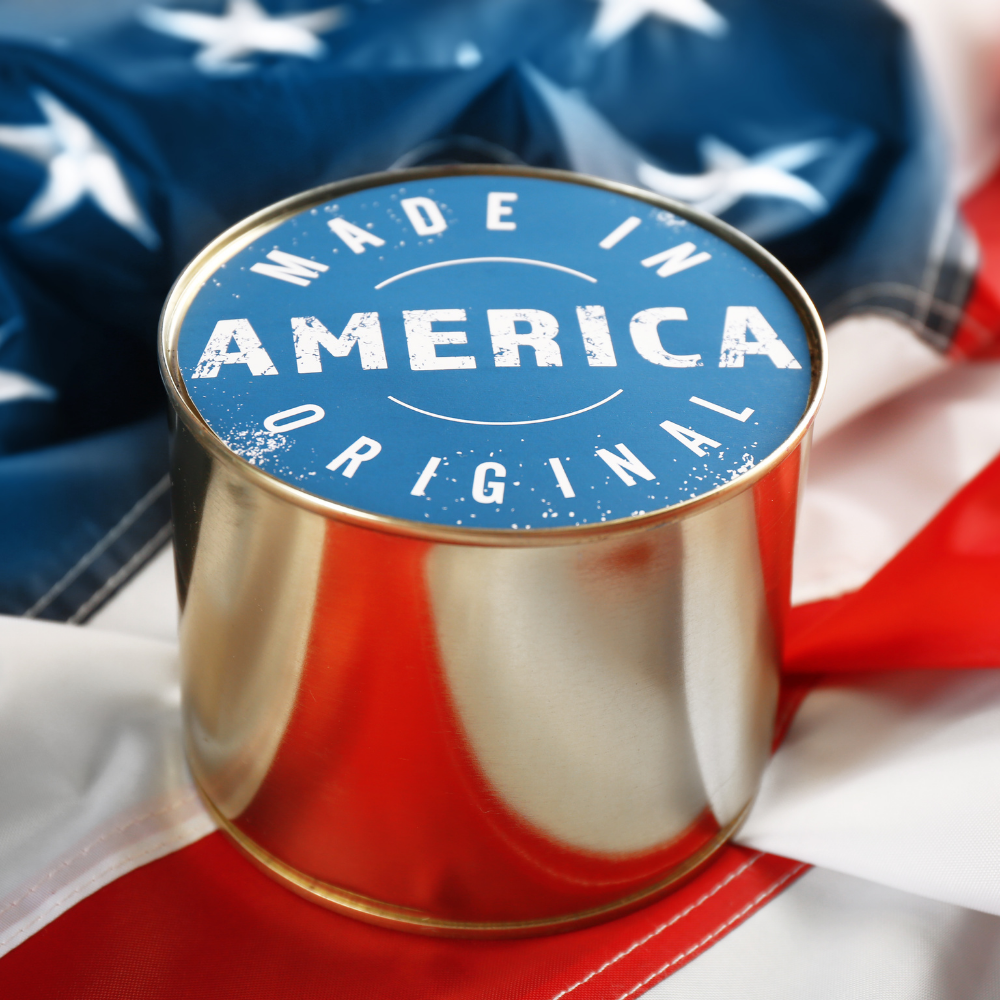In a two-part series taking a historical look at America’s rise to industrial power, CPA chief economist Jeff Ferry explains how a young republic – open to free trade – was ultimately forced to think things through when the British Empire restricted trade as a form of punishment.
His first article in the series ran as the main article on The American Conservative’s website on Thursday.
Jeff Ferry, chief economist, Coalition for a Prosperous America (Photo by Max Taylor).
“In 1807, (President Jefferson) asked Congress to enact an embargo on trade with Britain and France. Subsequent acts of Congress and the War of 1812 suppressed the vast majority of U.S. international trade.
The result was an immediate boom in U.S. manufacturing. According to economist Frank Taussig, in 1803 there were only four cotton factories in the U.S., operating perhaps 2,000 spindles. By 1815, there were hundreds of factories operating 500,000 spindles.” – “The American Way of Growth, Part I” by Jeff Ferry, The American Conservative, August 18, 2020.
It took the actions of Britain to turn the Jefferson government on to economic protectionism. During the Napoleonic Wars, Britain and France both harassed American shipping, but Britain’s actions were more outrageous and hurt U.S. supply chains.
In 1815, the Napoleonic Wars ended, and peacetime goods flooded American and European markets, causing depression everywhere. President James Madison responded with the Tariff of 1816, which gave a boost to key industries including cotton, wool, and iron. Once again, the British helped to cement Americans’ preference for protection, along with contempt for their mother country. British Member of Parliament Lord Brougham provided a strikingly clear argument for America to use protective support for infant industries when he told Parliament: “It was well worthwhile to incur a loss upon the first exportation in order, by the glut, to stifle in the cradle those rising manufactures in the United States which the war had forced into existence contrary to the natural state of things.” Lord Brougham was arguing for deliberate British dumping to destroy America’s young industries. Two centuries later, China would deploy similar tactics to try to destroy aging American industries, Ferry writes.
Ferry goes on to describe what he refers to as “the four Hs of industrial success” to deliver prosperity: a nation’s needs an industry that is high-growth, high-profit, high-productivity, and high-wage.
In recent testimony to the U.S. International Trade Commission in July, Ferry talked about new steel mills being built in the U.S. in large part due to the Section 232 steel tariffs imposed in 2018.
Like pre-war U.S., open markets can be a detriment to domestic industry. Some form of safeguards are needed to protect against predatory practices from rival nations, and even allies looking for greater market share for their biggest and favorite corporations. Last year, America’s major steel companies paid a median annual income to their entire workforce of $117,200—four times what America’s largest private employer, Walmart, pays employees and double what the average American worker earns. At the two most technologically advanced steelmakers, Nucor and Steel Dynamics, profit sharing and bonuses make up a large portion of that pay.
Since colonial times, America had been a country of plentiful land, relatively scarce labor, and high wages relative to Europe. In all these industries, the story was the same: rapid industrial growth and high profit created a demand for workers, Ferry writes. The only way the entrepreneurs could meet that demand was to raise wages. As a result, the growth industries led the upward movement in incomes for the average American worker. As workers were pulled up to steel areas, for instance, shortages in other regions and industries pulled up wages.
The article is part of the magazine’s American System series edited by British historian David A. Cowan and supported by the Common Good Economics Grant Program. Cowan’s American System series focuses on rebuilding a conservative philosophy of political economy that includes rebuilding the U.S. industrial base and protecting American workers and consumers.
Cowan’s American System Overview is available by clicking here.
Part 1 of Ferry’s article is available here.














